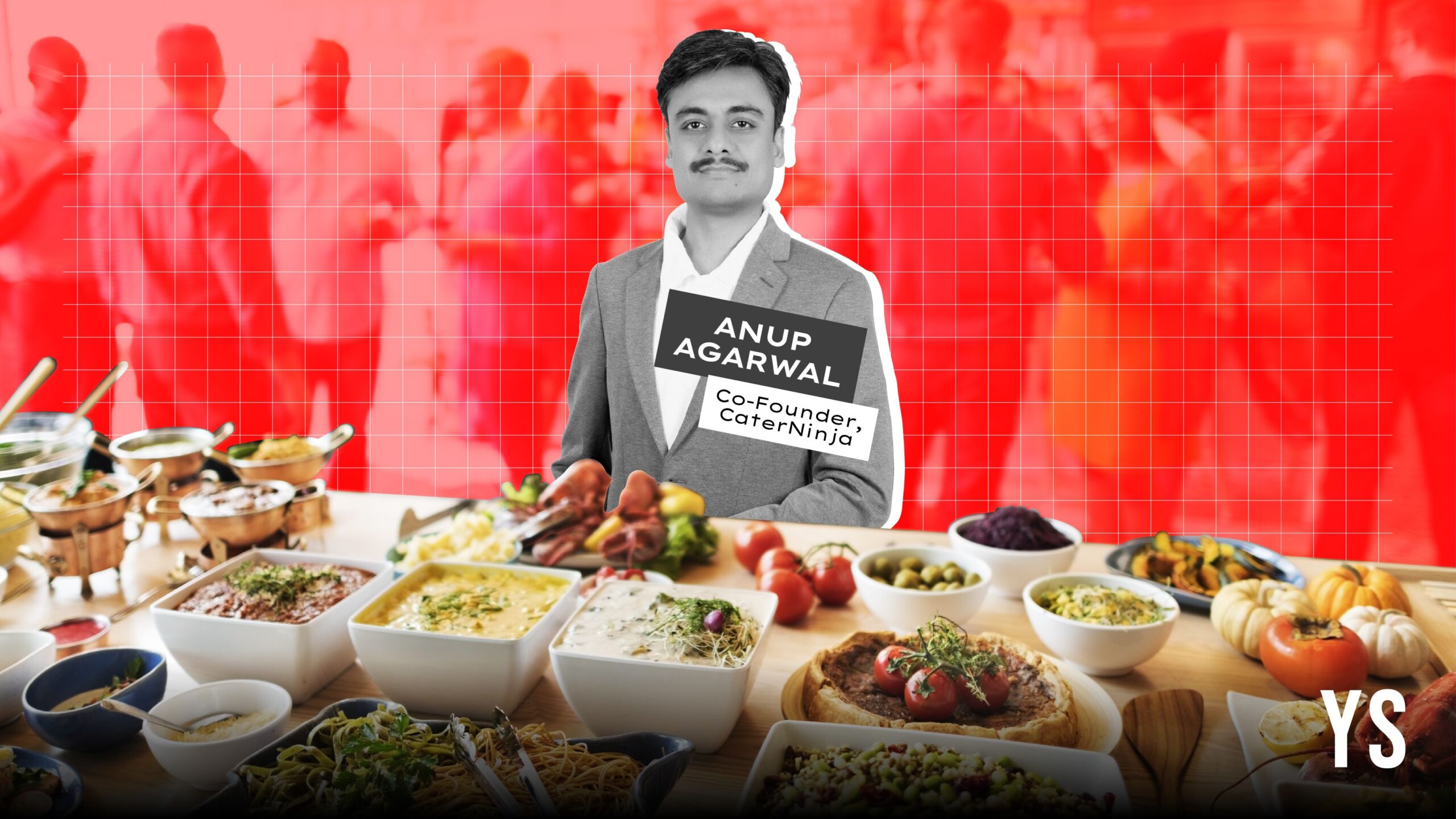What does every social gathering have in common? The most obvious answer to that question is food. While one might forget what had happened at the event or the decorations and what people wore, especially at weddings and birthday parties, they always remember the feast.
Food takes centre stage at every event—from the grand wedding buffets to smaller spreads at intimate parties. More often than not, many guests inquire about the catering services provider, hoping to hire them in future.
Ensuring that the food lives up to expectations is a daunting task. While many are lucky enough to find the perfect caterer for their event, others may not. This is where steps in.
According to CEO Anup Agarwal, the Indian catering market—long dominated by large-scale events and inconsistent service standards—is slowly changing as modern consumers seek solutions for smaller, more intimate gatherings.
A Mordor Intelligence report noted that the Indian food services market is expected to grow at a CAGR of 11.19% between 2021 and 2026.
Seeing the perfect opportunity to cash in, co-founders Agarwal and Anurag Mishra decided to launch the Bengaluru startup in 2016 as a full-service caterer aggregator, offering comprehensive end-to-end catering services.
CaterNinja provides a wide range of customisable menus, catering to diverse culinary preferences and specific event requirements.
From concept to launch
Soon after it launched as a catering aggregator, the co-founders realised that customers were looking for more than just a platform to choose caterers—they wanted a seamless and stress-free experience.
“Customers don’t want to rate food quality after the fact; they just want everything to be perfect on the day of the event,” Agarwal says.
He adds, “The catering industry, long plagued by inconsistent service standards, limited transparency, and a lack of focus on individual needs, often left customers dissatisfied.”
In fact, having first-hand experience as parents with the challenges of organising family events, the duo wanted to bring the convenience of restaurant service into a home-like atmosphere, all within a reasonable budget.
These reasons prompted CaterNinja’s co-founders to rethink the business model. In 2020, the company pivoted to offer a solution that blended the convenience of restaurants with the comfort of home-cooked meals.
Developed over a year of market research and customer feedback, the pivot allowed CaterNinja to better serve modern customers’ evolving needs.
Starting with an initial investment of Rs 5 lakh from personal savings, CaterNinja now boasts a team of 150 people across various departments.
It has since raised an undisclosed seed round from Titan Capital and plans to raise $2-3 million in 2025.
What does it offer
CaterNinja offers three services—NinjaBox, NinjaBuffet, and NinjaLive. The pricing for these services is based on various factors, including group size, cuisine, and service requirements.
In NinjaBox, customers can order ready-to-serve boxes. The NinjaBuffet service offers a casual buffet service for confined spaces, while NinjaLive is a live catering service featuring foodtainment options like pizza or momo stations for various size events.
The Bengaluru startup offers customisable menus, allowing patrons to mix and match multiple cuisines—from North Indian to Pan Asian, South Indian, Continental, Mexican, and more. It also accommodates specific customer needs, such as no onion and garlic menus for religious ceremonies or tailored menus for diverse guest demographics for anniversary parties with drinks.
It ensures uniformity by combining multiple ingredients, standardising operations, considering local culinary expectations to maintain quality, and using technology to streamline processes.
“We are building our services in a way where you think of your most unique catering needs, and we will have the solution ready,” Agarwal says.
To facilitate the same, CaterNinja’s proprietary algorithm—leveraging extensive consumer behaviour datasets—simplifies menu customisation, enabling customers to generate personalised quotes based on event size and cuisine preferences.
“We were creating a ton of data on consumer behaviour and choices. Menu creation for events was often an iterative process and created huge pain points. Using these datasets, we built a system that thousands now use to create their perfect menu,” the CEO explains.
The platform also ensures temperature-controlled deliveries and minimises human errors through prompt notifications and automation. It also ensures minimum food wastage by leveraging precise order management and portion control techniques.
“Our system detects human errors and prompts corrective actions, ensuring smooth operations for any event, big or small. Our 24/7 tech stack minimises information relay errors, which is crucial for managing large order volumes,” Agarwal says, adding that CaterNinja is looking to integrate AI into its tech stack soon.
Business model and future plans
CaterNinja operates as B2B and B2C models and serves startups, large corporations, government institutions, and public enterprises, as well as private gatherings, with guests ranging from 10 to 1,000.
The startup has strategically located cloud kitchens in Delhi, Mumbai, Bengaluru, Chennai, Hyderabad, and Pune, where it prepares the food and maintains quality control, ensuring fresh, quick delivery to clients across different locations. It plans to expand its operations to 20 Indian cities by 2025.
According to the co-founders, CaterNinja clocks in a monthly order volume of 1,000. With a 10X quarterly growth, the company has offered its services in over 25,000 events, so far.
It has served around a lakh orders so far, with nearly 70% of its orders received from individual customers, while the remaining 30% comes from corporate clients.
“Our goal is to do 10,000 monthly orders in the next 1-2 years. We’re not setting revenue targets but focusing on building a sustainable, customer-centric business,” he adds.
CaterNinja claims to have no direct competitors but sees food service providers, including Zomato, which recently introduced its large order fleet service for bulk orders, as its rivals.
“We emphasise technology integration, utilising AI for food consumption predictions to minimise waste, and enhance the catering experience, which contrasts with the more traditional logistics models,” Agarwal concludes.








![Read more about the article [YS Exclusive] SaaS startup Electrade bags seed funding led by DeVC](https://blog.digitalsevaa.com/wp-content/uploads/2024/11/CopyofNewPPTTemplates39-1732803302199-300x169.jpg)

